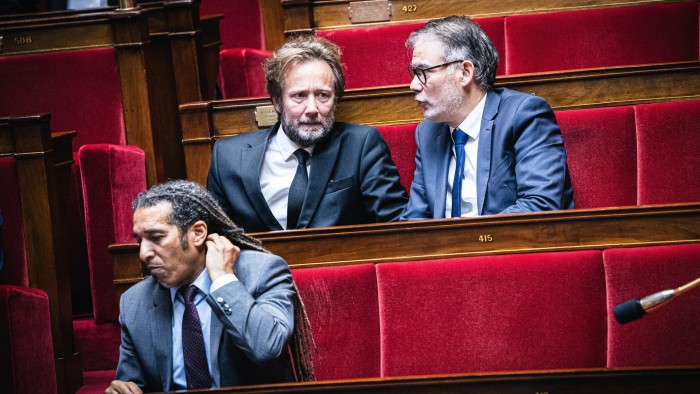Unlock the Editor’s Digest for free
Roula Khalaf, Editor of the FT, selects her favourite stories in this weekly newsletter.
France’s Socialist party leader has threatened to bring down Prime Minister Sébastien Lecornu’s fragile minority government by Monday if he does not agree to levy higher taxes on the country’s wealthiest, as discussions on the country’s 2026 budget intensify.
Olivier Faure, whose party holds a crucial swing vote in the hung parliament, told broadcaster BFMTV on Friday: “If there is no change . . . by Monday, the Socialists will vote against” the government’s budget plans and call a no-confidence vote.
The threat serves as a reminder of the perilous position of the French government as Lecornu seeks to avoid becoming the third prime minister to be voted out by parliament since President Emmanuel Macron’s ill-fated decision to call snap elections in June 2024.
Lecornu agreed to suspend Macron’s landmark pensions reforms in his preliminary budget text last week, in an olive branch to the Socialists that allowed his government to survive two no-confidence votes earlier this month.
However, the 69 Socialist deputies and other leftwing allies in the 577-strong National Assembly are seeking further concessions, as deputies begin to debate the income section of the budget law in parliament on Friday.
Among the measures proposed by the Socialists is the so-called Zucman tax — named after its author, the economist Gabriel Zucman — which would require people with fortunes above €100mn to pay a minimum of 2 per cent tax annually on all their assets, including their companies, shares of companies and unrealised gains.
The measure was rejected by a parliamentary committee earlier this week but will be debated by the assembly on Friday. Supporters of the tax have said it would bring inasmuch as €20bn a year, but critics have said the returns would be only about €5bn because many of the wealthiest are preparing to leave France or optimise their taxes.
 Prime Minister Sébastien Lecornu is under increasing pressure to improve the country’s public finances © Alain Jocardi/AFP/Getty Images
Prime Minister Sébastien Lecornu is under increasing pressure to improve the country’s public finances © Alain Jocardi/AFP/Getty Images
Faure did not insist on the Zucman tax specifically, but said that the government needed to increase tax revenues by €15 to €20bn, and that his party’s preference was for the measure to target the wealthiest.
“I want new sources of income. I want us to have enough money in our pockets to avoid to take from the pockets of average, ordinary French people who can take no more,” he said.
While he has rejected the prospect of a Zucman tax, Lecornu has proposed levying taxes on holding companies and maintaining a windfall tax on large companies.
Recommended
Lecornu’s budget proposal envisages €30bn of savings in 2026 in an effort to bring the deficit to 4.7 per cent of GDP next year, compared with 5.4 per cent in 2025. But he has stated that he is prepared for that figure to reach 5 per cent, signalling his willingness to make more concessions.
The budget talks are set to be particularly tortuous after Lecornu last week promised not to use a constitutional tool that allows the adoption of the budget without parliamentary debates. The move, which was another concession to the Socialists, has opened up all budget areas to parliamentary negotiations.
Last week, Standard & Poor’s cut France’s credit rating to A+ over concerns that debt will rise more than previously anticipated. Moody’s, the only big rating agency to still consider France an AA-rated country, is due to decide on Friday evening on the country’s rating, potentially heaping further pressure on Lecornu to improve the country’s public finances.


